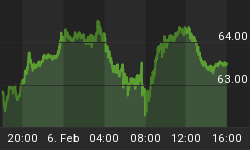It was about 5 years ago to the day when the world learned in February 2004 about H5N1; Avian Bird flu. "Bird Flu, The Next Global Pandemic?" the headlines read and the world was scared. Every night we watched the evening news and saw people throughout Asia wearing masks, all of whom were affraid to fall ill to H5N1. As of yesterday we started hearing about "Swine Flu" and the headlines were back "Europe Union Revives Pandemic Plan" and "WHO may raise pandemic threat level over swine flu" they read. Today the markets are reacting to these headlines but what do they really mean for you and your investments?
George Santayana said: "Those who cannot remember the past are condemned to repeat it." In trying to apply lessons from the bird flu outbreak to the recent swine flu outbreak we are dealing with materially similar details. In both scenarios we have similar mortality rates, incubation periods, and levels of global fear that a pandemic is upon us. So based on this is it logical to assume that we will see similar results in the markets?
Taking a look back at articles written during the bird flu scare reveals some interesting information. One of my favorites is an article called "Templeton's Mobius sees bird flu psychology" by Jonathon Boyd. In this article from March 15th, 2005 the following statements were made:
"In 1957-8 an Asian flu led to about 70,000 deaths, while in 1968-9 it was linked to about 45,000 deaths, while the outbreak of SARS between 2002-3 caused about 900 deaths, he says. The problem is these declining total numbers of deaths - as opposed to death rates of those infected - do not offset the level of worry people may have about the possibility of a new pandemic. This psychological impact could be greater than the actual immediate economic impact, Mobius says, although if, for example, tourists stop travelling to Asia it would have a real knock-on effect."
Psychology? That's interesting; especially when one considers that bird flu did little to affect the financial markets from a long term perspective. Taking that idea and exploring it a bit further consider these statements taken from the news today:
From the Wall Street Journal
"Unlike some countries, notably Russia, the EU won't restrict trade in pigs or pork. "Pigs can't receive or transmit this virus," says Mr. Madelin. "Countries that have imposed trade bans aren't following the evidence."
All the victims of avian flu caught the virus from birds. It never mutated into a form contagious between humans. Swine flu "is a much bigger problem, because it is a human virus," says Mr. Madelin. "Calling it swine flu is unfair to pigs."
And from Reuters
"The number of confirmed cases is changing rapidly as more information comes in. Hartl said the WHO now counted 40 confirmed swine flu cases in the United States. There are 26 confirmed cases in Mexico, 6 in Canada and 1 in Spain, he said. Britain subsequently confirmed 2 cases, and New York has 45 confirmed or likely cases, Mayor Michael Bloomberg said. Mexico has reported 1,600 suspected cases and says 149 people have died, possibly because of the disease. There are also suspected cases in France, Israel and New Zealand."
Psychology or legitimate threat? Well, consider the following...
The normal "Plain Jane" flu has a typical hospital mortality rate of between 5 and 10% depending on the strain of the virus and in the most severe seasons can get as high as 15%. Currently based on the most recent figures provided in the news there are about 2,000 confirmed global cases of swine flu and there have been approximately 150 deaths. Thus, so far, the swine flu has an estimated mortality rate well within "normal" flu limits at roughly 7.5%. Thus, when looked at statistically, swine flu has yet to even come close to the 25% level needed to be considered a pandemic.
Now, knowing the mortality facts from above, consider the way the global financial markets have reacted to the news of the flu thus far. Today across the world (generally) the following happened: The travel and hospitality industry was rocked, safe haven currencies, most notably the dollar and yen rose, drug manufactures were up, energy was down, most commodities were down, and most obviously hogs were crushed. With regard to hog prices falling does this even make sense considering that the disease is passed from humans to humans not from pigs to humans? It does, but only if people psychologically stop eating entirely safe pork.
As with the Bird Flu (which in my novice opinion was worse because it was passed from birds to people and then from people to people) the chance that swine flu is the next bubonic plague is next to zero. On top of this, as Mobius noted in 2005 and we saw in the markets today, the biggest concern appears to be a decrease in global travel due to the disease. Ironic, since virtually no one is traveling during the economic crisis anyway! So what are we worried about here; A late season outbreak of mildly stronger than normal flu? Expect things to go back to normal (whatever that is during this economic crisis) within the next couple of weeks, just as they did with the bird flu scare. Most importantly though, whatever you do, don't believe the hype or get overly concerned until you do the quick math and realize the mortality rate has gone over 15%. When that happens it's time to sell everything, hide inside, and pray you're headed for hog heaven.















